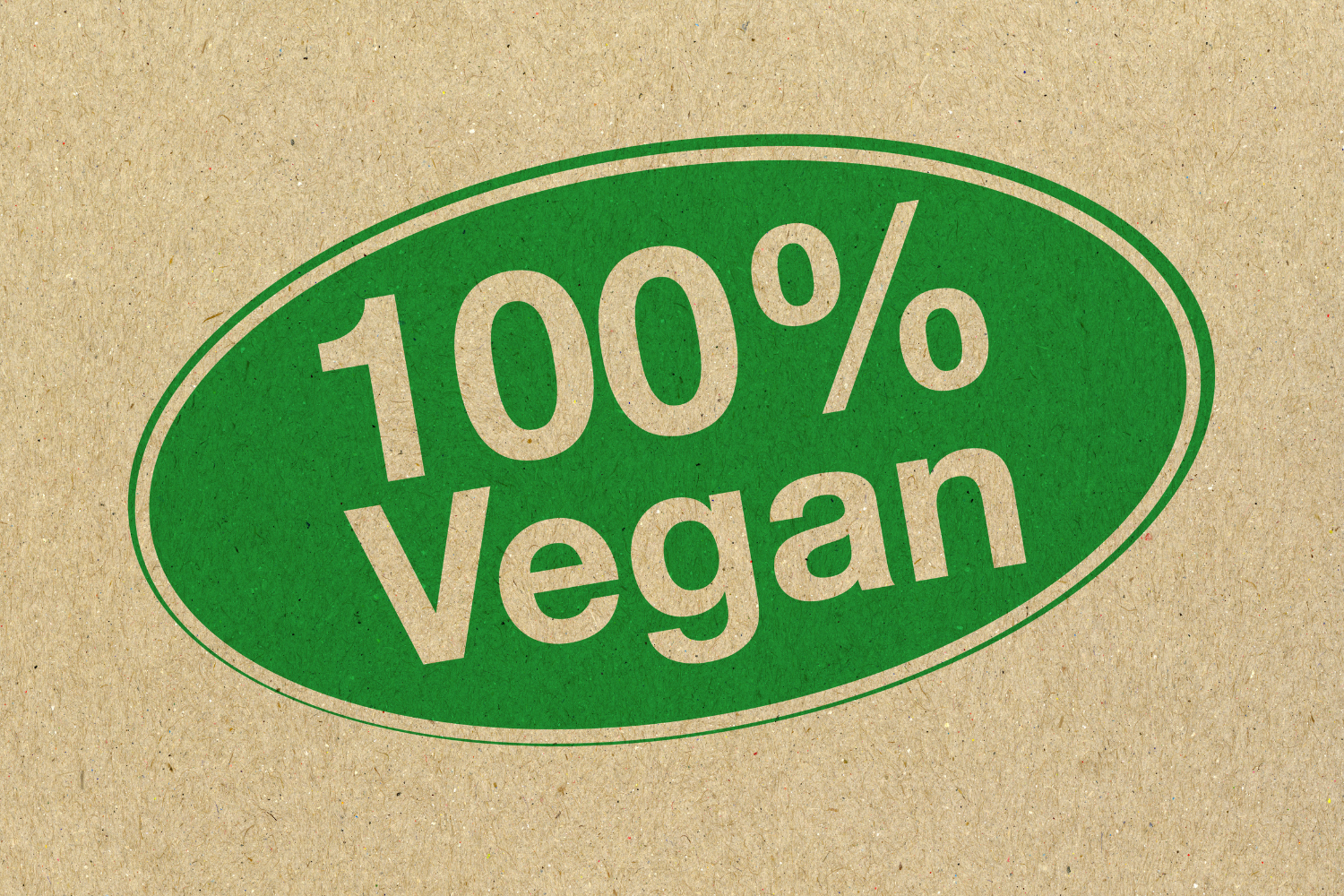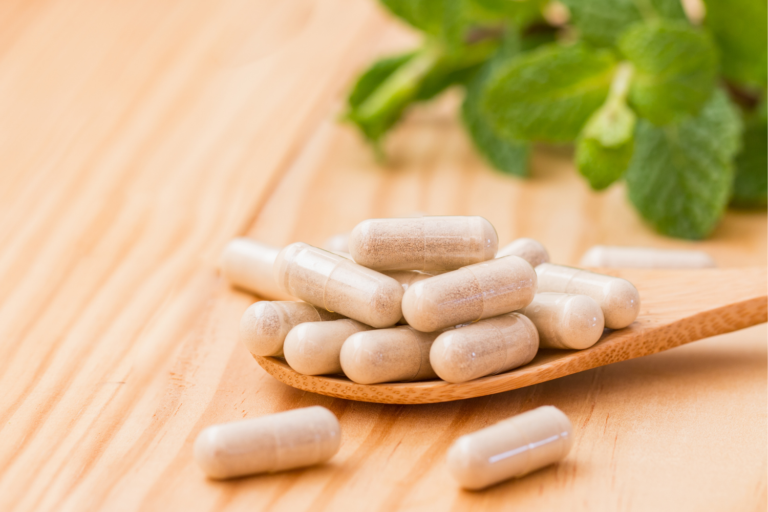The vegan market is expanding rapidly as consumers increasingly prioritize ethical and plant-based products, driving demand for transparency in the food industry and beyond. Vegan certification is an essential label that verifies products are free from animal-derived ingredients, byproducts, and animal testing, assuring customers of their commitment to the vegan lifestyle.
This guide provides businesses with a comprehensive understanding of vegan certification. It covers its benefits, the certification process, and actionable steps to obtain a trusted certification mark for vegan and vegetarian products.
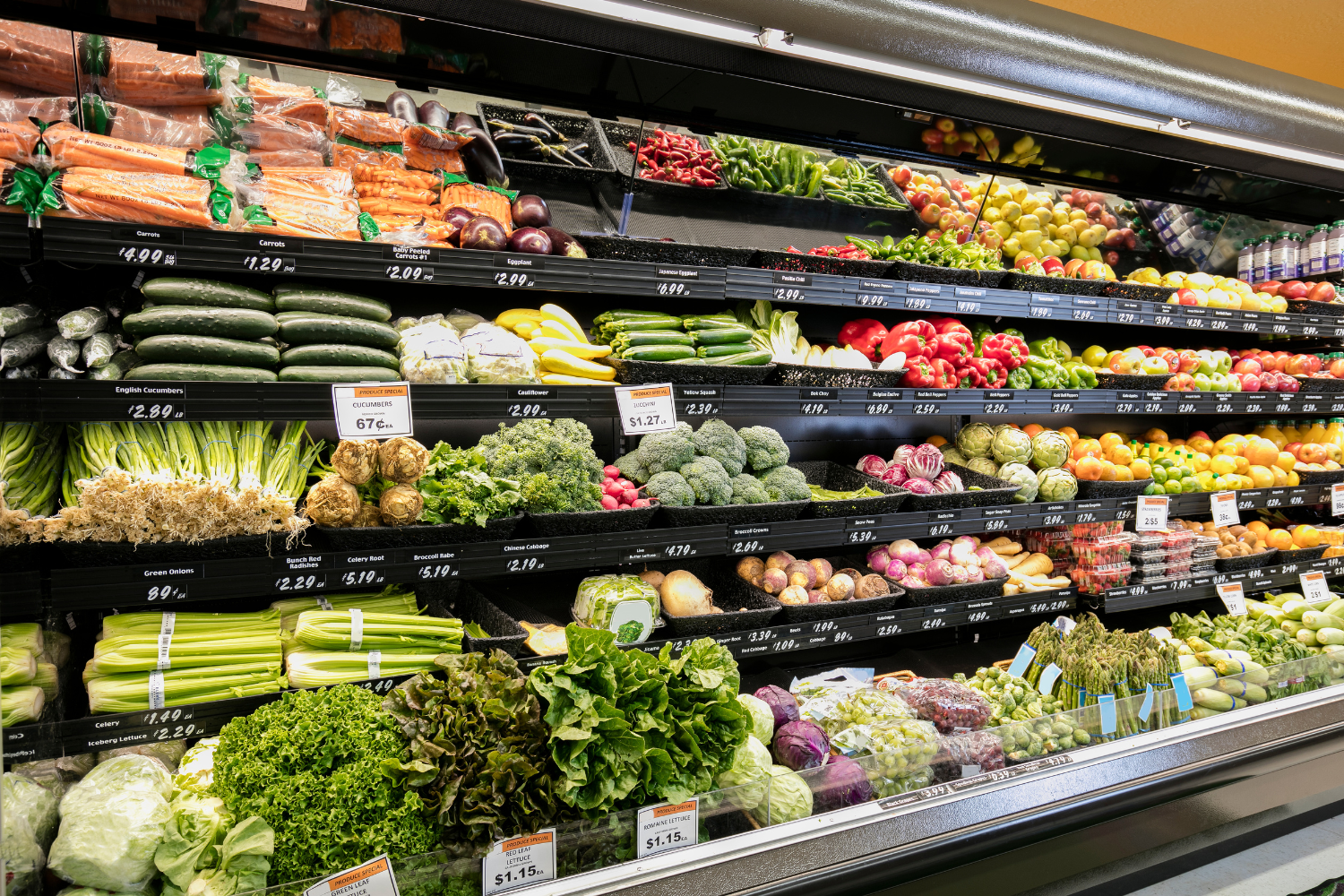
What Is Vegan Certification?
Vegan certification is an official verification that ensures a product is 100% free from animal-derived ingredients, such as dairy, gelatin, honey, or other animal byproducts and has not undergone animal testing at any stage of the production or processing steps. It covers all aspects of manufacturing, including sourcing and the final product, to guarantee compliance with vegan standards.
Certification is issued by organizations such as BeVeg or Vegan Action, which provide a vegan logo or certification mark for businesses to display on their products. These logos help consumers identify certified vegan products quickly, enhancing brand trust and visibility in the vegan and vegetarian products market.

Why Is Vegan Certification Important for Businesses?
Vegan certification is crucial for businesses aiming to succeed in an industry driven by ethical values, consumer trust, and plant-based innovation.
Meet Rising Consumer Demand
The global vegan market is expected to reach $61.35 billion by 2028 as plant-based lifestyles gain popularity. Vegan certification allows businesses to meet this growing demand by ensuring their products align with the ethical and dietary preferences of consumers. Certification reassures customers that they are purchasing animal-free products that align with ethical and environmentally conscious values.

Build Trust and Transparency
Displaying a vegan certification logo demonstrates that a product meets strict ethical and plant-based guidelines. It shows consumers that the company adheres to a transparent manufacturing process that excludes animal-derived ingredients, animal products, and animal testing, offering clear evidence of its commitment to cruelty-free standards.
Attract a Wider Audience
Vegan products appeal to a broad audience beyond those following a vegan diet, including vegetarians, eco-conscious shoppers, and individuals with specific dietary preferences. By obtaining certification, businesses can cater to these diverse groups, expanding their reach and growing their customer base.
Gain a Competitive Edge
In a crowded market, certification schemes like vegan certification help brands stand out. Displaying trusted logos, such as the V-Label or other certification marks, on packaging and marketing materials gives businesses an edge by assuring consumers that their products meet rigorous vegan standards. This distinction can drive consumer preference and strengthen brand loyalty.
What Products Can Be Vegan Certified?
Vegan certification applies to a wide range of products across various industries, ensuring they meet strict criteria for being free from animal ingredients, byproducts, and testing. This flexibility allows businesses to certify individual products or entire product lines, broadening their appeal to consumers who value ethical and plant-based options.
Industries Eligible for Vegan Certification
- Food and Beverages: Snacks, supplements, plant-based dairy, meat alternatives, and beverages.
- Supplements: Vitamins, protein powders, and capsules free from gelatin or other animal-derived ingredients.
- Cosmetics and Personal Care: Skincare, makeup, and hair care products with no animal-derived ingredients or testing.
- Clothing and Textiles: Leather alternatives, wool-free fabrics, and ethical fashion items.
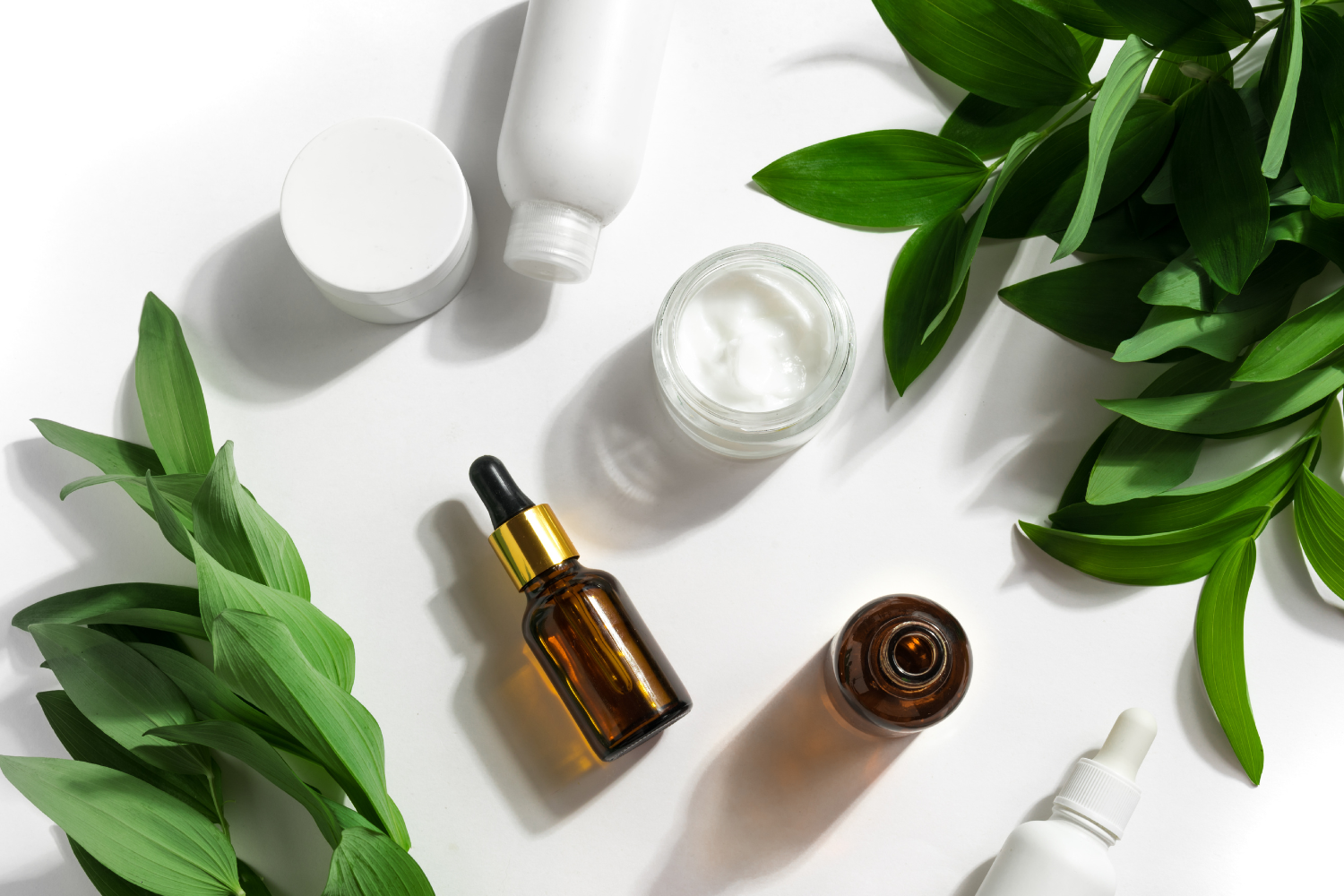
What Are the Requirements for Vegan Certification?
To achieve vegan certification, businesses must meet strict guidelines that ensure their products are free from animal-derived ingredients, animal testing, and cross-contamination during the production and processing steps.
No Animal Ingredients
Products must not contain any animal-derived components or byproducts. Examples include:
- Meat, fish, or poultry
- Dairy, eggs, or honey
- Gelatin, collagen, or any other animal byproducts
No Animal Testing
To obtain certification, the product and all its ingredients must not have been subjected to animal testing at any stage of development. This includes laboratory testing and any involvement of animal suffering in product testing or research. Certification organizations often require detailed documentation from manufacturers to confirm compliance.
No Cross-Contamination
Facilities that produce vegan products must implement strict processes to prevent cross-contamination with non-vegan products. This involves dedicated equipment, storage areas, and handling procedures to ensure that animal-derived ingredients or animal products do not come into contact with certified products.
Verified Supply Chain
Businesses are required to verify that their entire supply chain adheres to vegan standards. This includes confirming that all suppliers meet guidelines for animal-free ingredients and non-animal GMOs and avoid animal-derived genes or byproducts during the production process. Certification organizations often perform thorough reviews to ensure supply chain transparency and compliance.

How to Get Vegan Certified: Step-by-Step Process
Securing vegan certification involves a straightforward process to ensure your products meet strict vegan standards. Follow these steps to certify your products and display a trusted vegan logo.
Step 1: Choose a Vegan Certifying Organization
Select a certification body that aligns with your product category and target market. Each organization has unique guidelines and certification marks to fit various industries.
Popular vegan certification bodies include:
- Vegan Society (UK): Known for the trusted “Vegan Trademark.”
- Certified Vegan (USA): Managed by Vegan Action, suitable for food and consumer goods.
- PETA-Approved Vegan: Focuses on fashion, beauty, and personal care products.
- V-Label: A widely recognized international vegan seal.
Step 2: Review Certification Requirements
Carefully review the specific guidelines provided by your chosen certification body. These requirements often vary depending on the product category, such as food, supplements, or personal care.
Ensure ingredient sources, supplier certifications, and manufacturing processes align with vegan standards. Double-check for the absence of animal ingredients, byproducts, and cross-contamination risks in your production process.
Step 3: Submit Your Application
Complete an application with detailed information about your product to begin the certification process.
Provide details about your product, including:
- Ingredient list and sourcing
- Manufacturing and processing methods
- Testing practices (to confirm no animal testing)
Step 4: Undergo Product and Facility Review
Certification bodies will review your application, including all submitted documentation, to ensure compliance with vegan standards. Some certifiers may also conduct on-site inspections of your production facilities to verify adherence to guidelines.
If issues arise, such as ingredient discrepancies or potential cross-contamination, address them promptly to move forward in the certification process.
Step 5: Obtain Vegan Certification
Once approved, your product will receive official vegan certification. You’ll gain access to the certification mark, such as the Vegan Trademark or V-Label, which you can display on packaging, websites, and marketing materials.
Displaying the certification logo reassures consumers and boosts your product’s credibility in the competitive plant-based and ethical product market.
Step 6: Maintain Compliance
Maintaining vegan certification requires ongoing adherence to the guidelines set by the certifying organization. This includes regular audits, reviews, and updating certifications if ingredients, suppliers, or production methods change. Staying compliant ensures continued use of the certification mark and preserves consumer trust.
How Much Does Vegan Certification Cost?
The cost of vegan certification depends on several factors, including the number of individual products being certified, the complexity of their ingredients, and the certifying organization’s specific requirements. Certification bodies often charge an application fee, and some may include additional expenses for laboratory testing, supply chain verification, or on-site facility inspections. Annual renewal fees are also common, ensuring products maintain compliance with vegan certification standards.
Typical costs range from $300 to $2,500 per product. More complex products, such as supplements with multiple ingredients, may incur higher fees due to the detailed review of sourcing and manufacturing processes. Despite these upfront and recurring costs, vegan certification can offer long-term benefits, including opportunities to increase sales, build customer loyalty, and access growing markets for certified vegan products. Additionally, businesses with multiple certifications, such as organic or gluten-free labels, can enhance their competitive edge by catering to diverse consumer needs.

Benefits of Displaying a Vegan Certification Logo
Displaying a vegan certification logo offers numerous advantages for businesses by building trust, boosting sales, and enhancing brand reputation.
Builds Instant Trust
A recognizable vegan logo signals transparency and a strong ethical commitment to consumers. It assures customers that the product meets strict vegan standards, such as excluding animal ingredients, byproducts, and animal testing. This certification mark simplifies purchasing decisions, as buyers can quickly identify trustworthy, cruelty-free products in the crowded food and personal care markets.
Boosts Product Sales
Certified vegan products appeal to the rapidly growing vegan, vegetarian, and eco-conscious markets. The global demand for plant-based and animal-free products is increasing, and certification helps businesses attract customers who value ethical choices. This added credibility can lead to a significant boost in sales and long-term growth.
Opens Doors to Retailers and E-Commerce Platforms
Retailers and online platforms often prioritize vegan-certified products for their shelves and digital marketplaces. Certification marks like the V-Label or Vegan Trademark add value by meeting the requirements of stores and platforms focused on ethical and plant-based products. Businesses with certified vegan products are more likely to be considered for placement in prominent retail chains and specialty markets.
Enhances Brand Image
Vegan certification aligns businesses with ethical and cruelty-free practices, enhancing their brand reputation. As consumers increasingly choose brands that reflect their values, certification demonstrates a company’s commitment to protecting animals, supporting the vegan lifestyle, and promoting sustainable production practices. This alignment strengthens customer loyalty and positions the brand as a leader in the ethical marketplace.
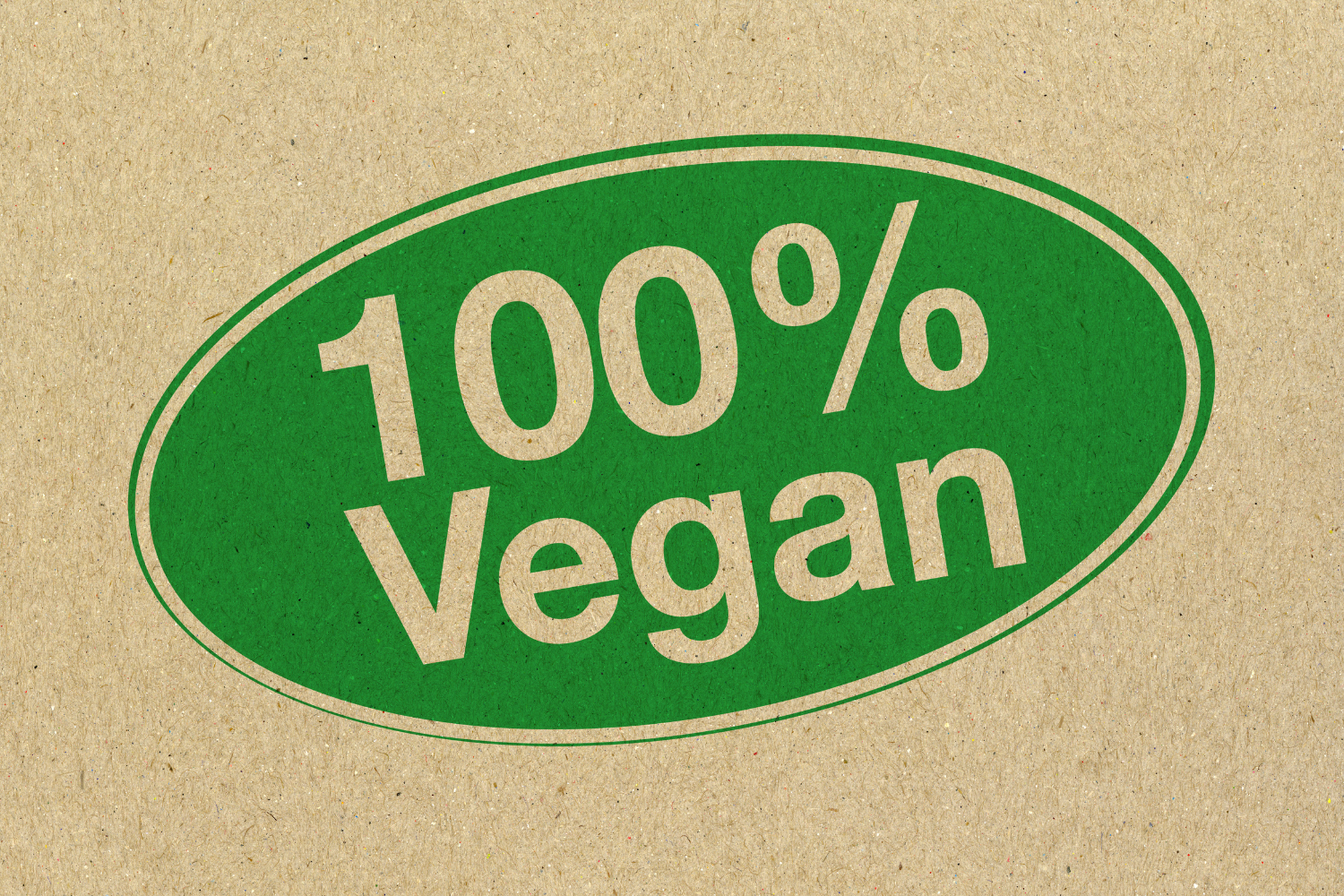
Why Vegan Certification Is a Smart Business Move
Vegan certification is essential for businesses looking to meet the growing demand for ethical, plant-based products. It builds trust, boosts product sales, and enhances brand image in a highly competitive market. Certification logos signal transparency and a commitment to cruelty-free practices, making it easier for consumers to choose your products. By selecting a certifying body and starting the process today, businesses can unlock new opportunities and establish themselves as trusted leaders in the vegan and vegetarian product industry.
Frequently Asked Questions
How Long Does It Take to Get Vegan Certified?
Depending on product complexity and facility readiness, the process can take 4-8 weeks.
Is Vegan Certification Mandatory?
No, but it’s highly recommended for businesses targeting the vegan market and building consumer trust.
Can Small Businesses Afford Vegan Certification?
Yes, many certification bodies offer affordable options for small businesses and startups.
What’s the Difference Between Vegan and Cruelty-Free?
Vegan means no animal ingredients or byproducts; cruelty-free means no animal testing but may still include animal-derived ingredients.
Can Non-Food Products Be Vegan Certified?
Yes, cosmetics, personal care items, clothing, and household products can all be vegan certified.
References
- Food Safety Authority of Ireland. (n.d.). Requirements for Different Stages of the Process. https://www.fsai.ie/business-advice/running-a-food-business/food-donations/on-street-food-donation/requirements-for-different-stages-of-the-process
- Globe News Wire. (2022). Vegan Food Market to Hit USD 61.35 Billion by 2028 | Vegan Food Industry Revenue, and exhibit a CAGR of 12.95% during the forecast period 2021 – 2028. https://www.globenewswire.com/news-release/2022/03/08/2398706/0/en/Vegan-Food-Market-to-Hit-USD-61-35-Billion-by-2028-Vegan-Food-Industry-Revenue-and-exhibit-a-CAGR-of-12-95-during-the-forecast-period-2021-2028.html
- Gullapalli, R. P., & Mazzitelli, C. L. (2017). Gelatin and Non-Gelatin Capsule Dosage Forms. Journal of pharmaceutical sciences, 106(6), 1453–1465. https://doi.org/10.1016/j.xphs.2017.02.006
- International Organization for Standardization. (n.d.). Conformity assessment. https://www.iso.org/conformity-assessment.html
- Nielsen. (2021). Sustainability and ethical consumer preferences report. https://www.nielsen.com/news-center/2022/nielsens-inaugural-brand-sustainability-report-reveals-australian-consumer-perceptions-of-the-sustainability-efforts-of-leading-brands/
- The Vegan Society. (2022). The Vegan Trademark. https://www.vegansociety.com/the-vegan-trademark
- U.S. Food and Drug Administration. (2018). Guidance for Industry: Food Labeling Guide. https://www.fda.gov/regulatory-information/search-fda-guidance-documents/guidance-industry-food-labeling-guide
